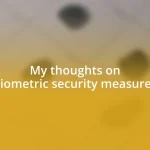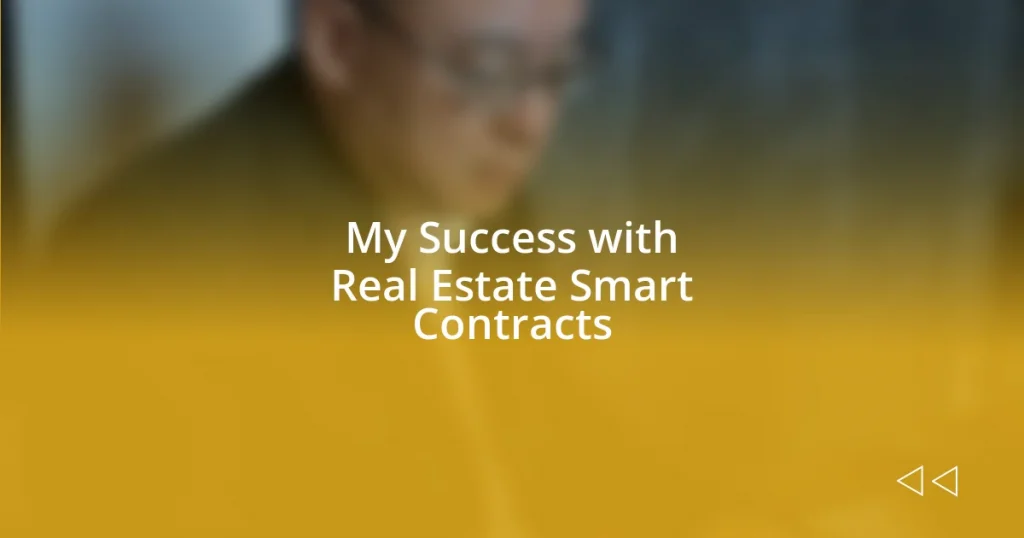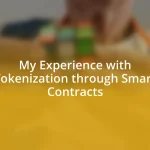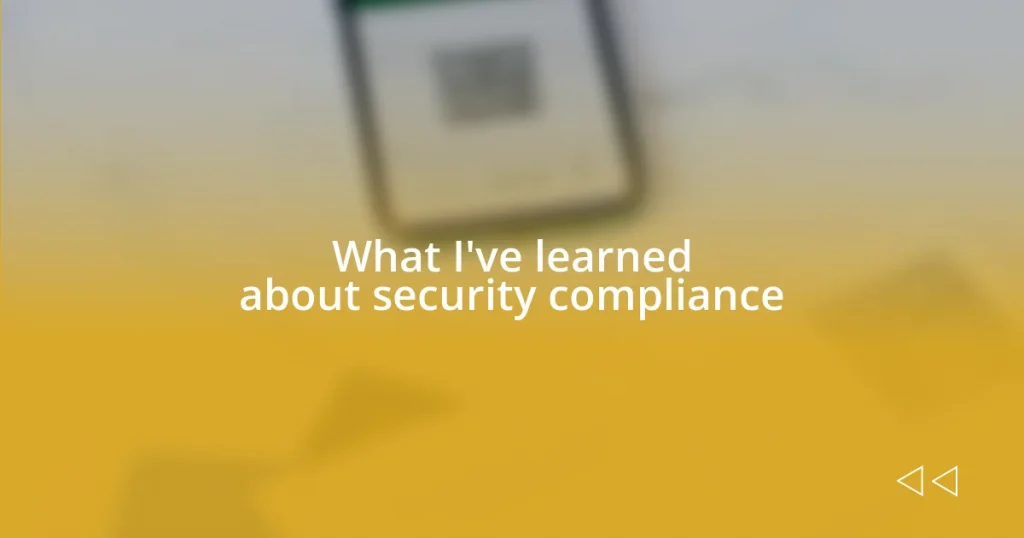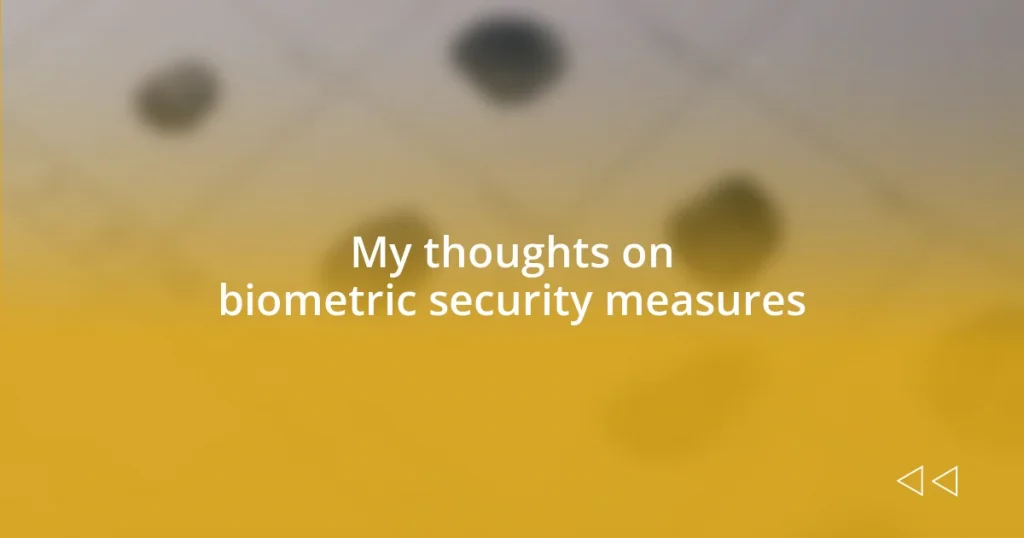Key takeaways:
- Smart contracts automate real estate transactions, enhancing efficiency through transparency, security, and reduction of fraud risks.
- Common challenges include technical knowledge gaps and legal uncertainties, which can be addressed through education, training, and expert consultations.
- Real-world applications show significant improvements in transaction speed and reliability, transforming cumbersome processes into streamlined experiences.
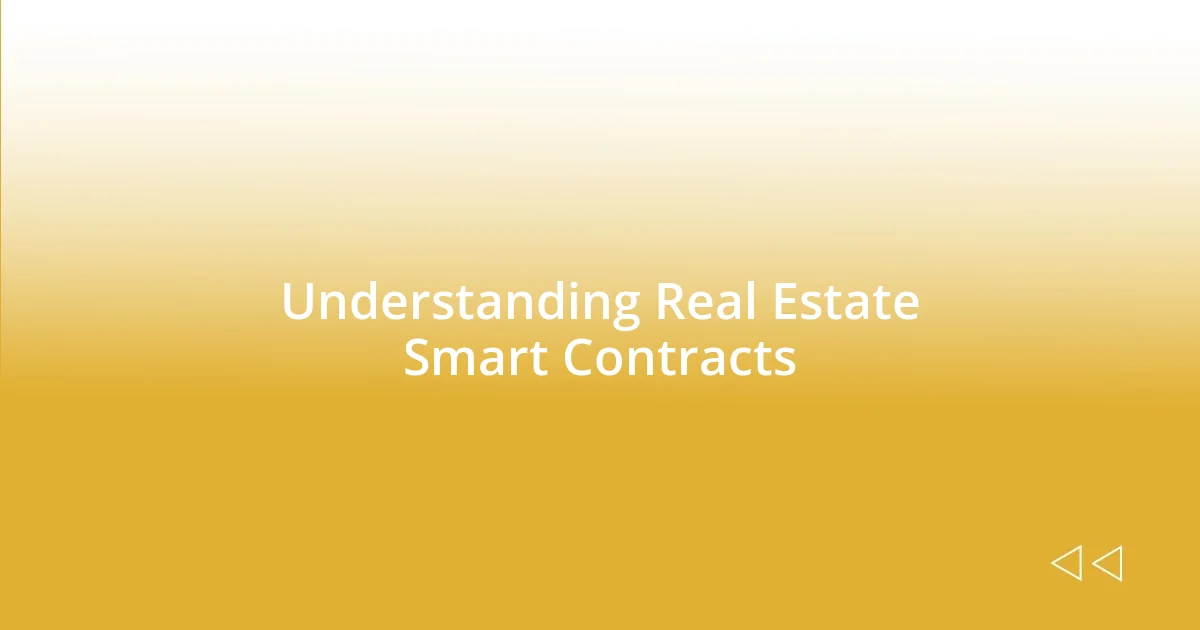
Understanding Real Estate Smart Contracts
Smart contracts in real estate are essentially programmable agreements that execute automatically once predetermined conditions are met. I remember the first time I encountered this technology during a property transaction; the idea of removing the need for a lengthy middleman process was exhilarating. Can you imagine closing a deal in a fraction of the time, with increased security and transparency?
These contracts are built on blockchain technology, which means they are decentralized and tamper-proof. I often think about how critical this feature is in a world where trust can be scarce. For instance, during a previous transaction, knowing that every step was recorded and immutable gave me unprecedented peace of mind. Have you ever wished that you could completely eliminate the risk of fraud in real estate?
What I find fascinating is how smart contracts can streamline tasks like escrow management or title transfers. I vividly recall a situation where everything was delayed due to paperwork. If only we had used smart contracts then! It’s amazing to think that in the near future, many of the cumbersome processes we endure today could be simplified, reshaping the entire landscape of real estate buying and selling.

Key Features of Smart Contracts
The automation of processes is a standout feature of smart contracts. When my colleague and I decided to invest together, we utilized a smart contract to manage our investment details. It executed terms flawlessly, without us needing to monitor every single action. This level of automation not only made the process efficient but also allowed us to focus our attention on other important aspects of our investment.
Another key aspect is the transparency of transactions. I remember another deal where all parties involved had access to the same information in real time. This transparency eliminated confusion and built trust, which is often lacking in traditional transactions. Honestly, it felt refreshing to engage in a process where everyone was on the same page.
Lastly, the security features inherent in smart contracts cannot be overstated. I’ve experienced firsthand how this technology protects sensitive information from unauthorized access. For example, during one of my property deals, the peace of mind that came with knowing that our documents were encrypted and securely stored was invaluable. Have you ever worried about the misuse of your personal data? Real estate transactions can be risky, but smart contracts significantly reduce that worry.
| Feature | Description |
|---|---|
| Automation | Smart contracts execute terms automatically when conditions are met, streamlining processes. |
| Transparency | All parties involved can access transaction details in real time, fostering trust. |
| Security | Data is encrypted and securely stored, reducing the risk of unauthorized access. |
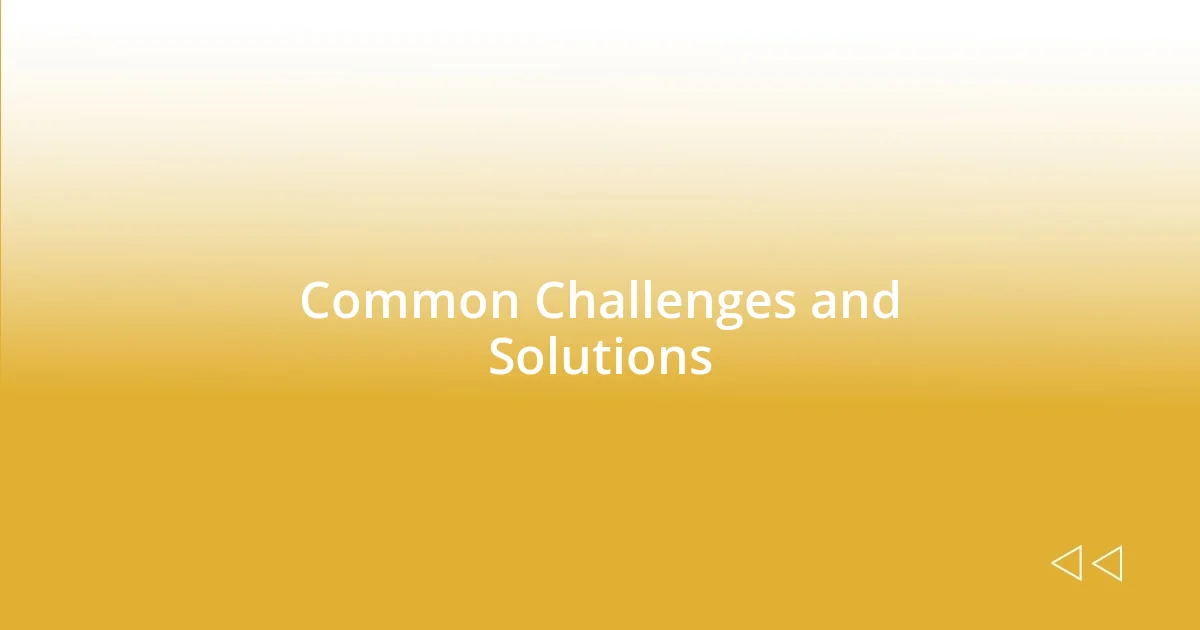
Common Challenges and Solutions
Navigating the world of real estate smart contracts certainly comes with challenges. I remember a particular transaction where understanding the technical aspects posed a barrier for some team members. It was a bit frustrating at times, as I realized not everyone shared the same familiarity with blockchain technology. This lack of knowledge can hinder effective communication and collaboration among parties.
To overcome such hurdles, education and training are essential. By providing workshops or resources, everyone involved can feel empowered and connected to the process. Moreover, I found it helpful to have a dedicated point of contact who could clarify any confusing terms or concepts.
Here’s a quick list of common challenges and potential solutions:
-
Technical Knowledge Gap: Some parties may lack understanding of smart contracts.
- Solution: Organize educational sessions or provide clear resources.
-
Integration with Existing Systems: Difficulty in integrating smart contracts with traditional real estate systems.
- Solution: Work with tech professionals who can facilitate smooth integration.
-
Legal and Regulatory Uncertainty: Lack of clear regulations surrounding smart contracts.
- Solution: Consult legal experts to navigate the current landscape effectively.
Addressing these challenges can transform the smart contract experience and create a more collaborative atmosphere. I’ve certainly seen the benefits of patience and education firsthand, as it not only enhanced my own understanding but also built stronger relationships within my teams.

Real World Examples of Success
One standout success story I experienced involved a property sale that had been stalled for years due to complicated paperwork and trust issues. Utilizing a smart contract transformed the deal entirely. All parties were able to verify that conditions were met before moving forward, which sped up the sale process and reduced the emotional stress that often accompanies real estate transactions. Have you ever felt that knot in your stomach while waiting for approvals? I can tell you, it was liberating to see everything fall into place seamlessly.
In another instance, my partner and I invested in a mixed-use property through a platform that leveraged smart contracts. It was fascinating to witness how the contract automatically distributed rental income based on predefined terms every month. Forget the tedious reconciliation processes; the automation played a significant role in our success, allowing us to reinvest without delay. Have you wondered how much time and energy you could save in a similar situation?
One of my friends ran an innovative real estate startup that used smart contracts to streamline leases for commercial spaces. They reported a remarkable uptick in clients due to the unbeatable transparency it offered. Clients appreciated knowing that all terms were clearly defined and immediately executable, which built a strong sense of reliability. It really struck me how such technology could not only enhance efficiency but also forge lasting relationships in the business. Isn’t it inspiring to think about how trust can be cultivated in such a methodical way?


